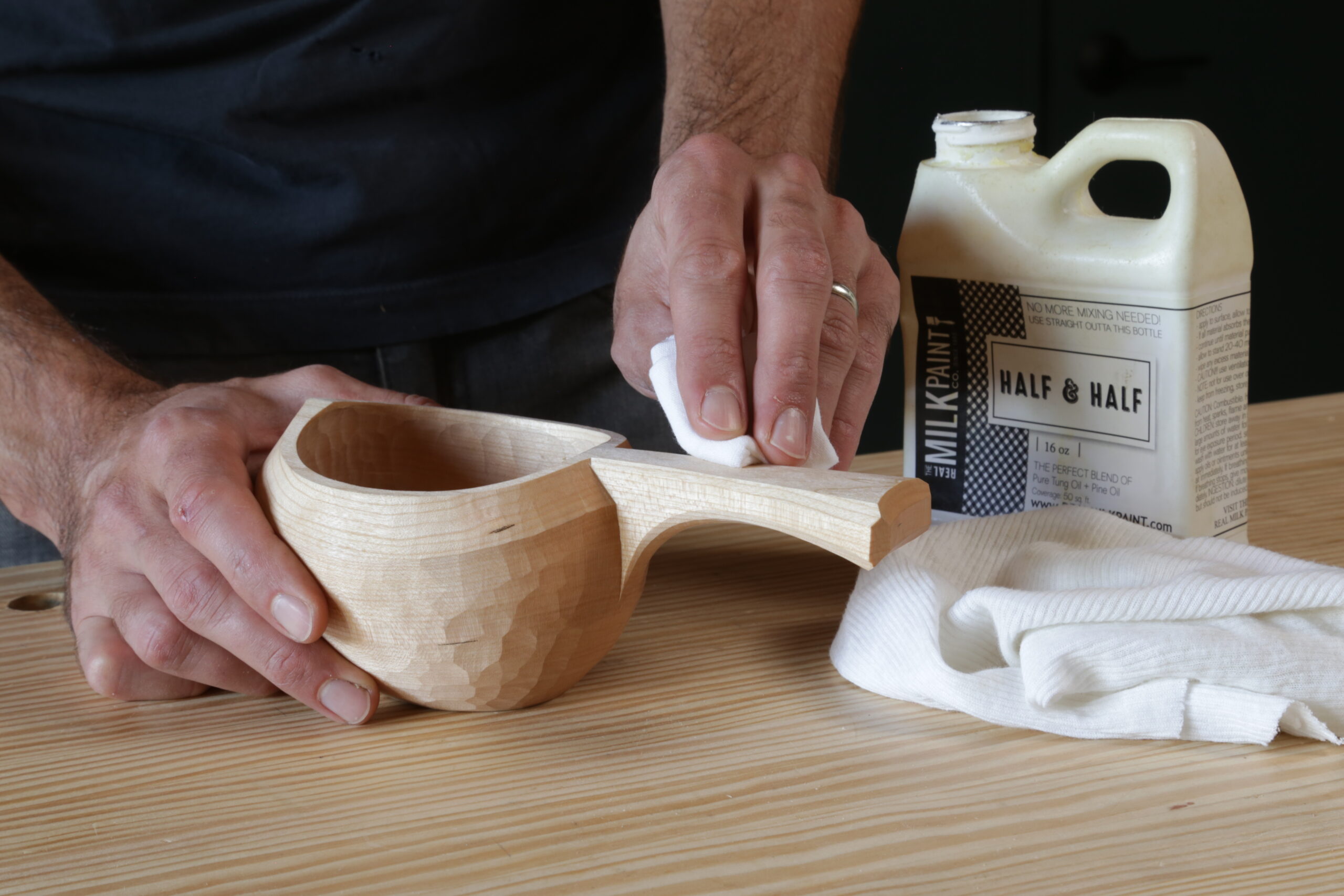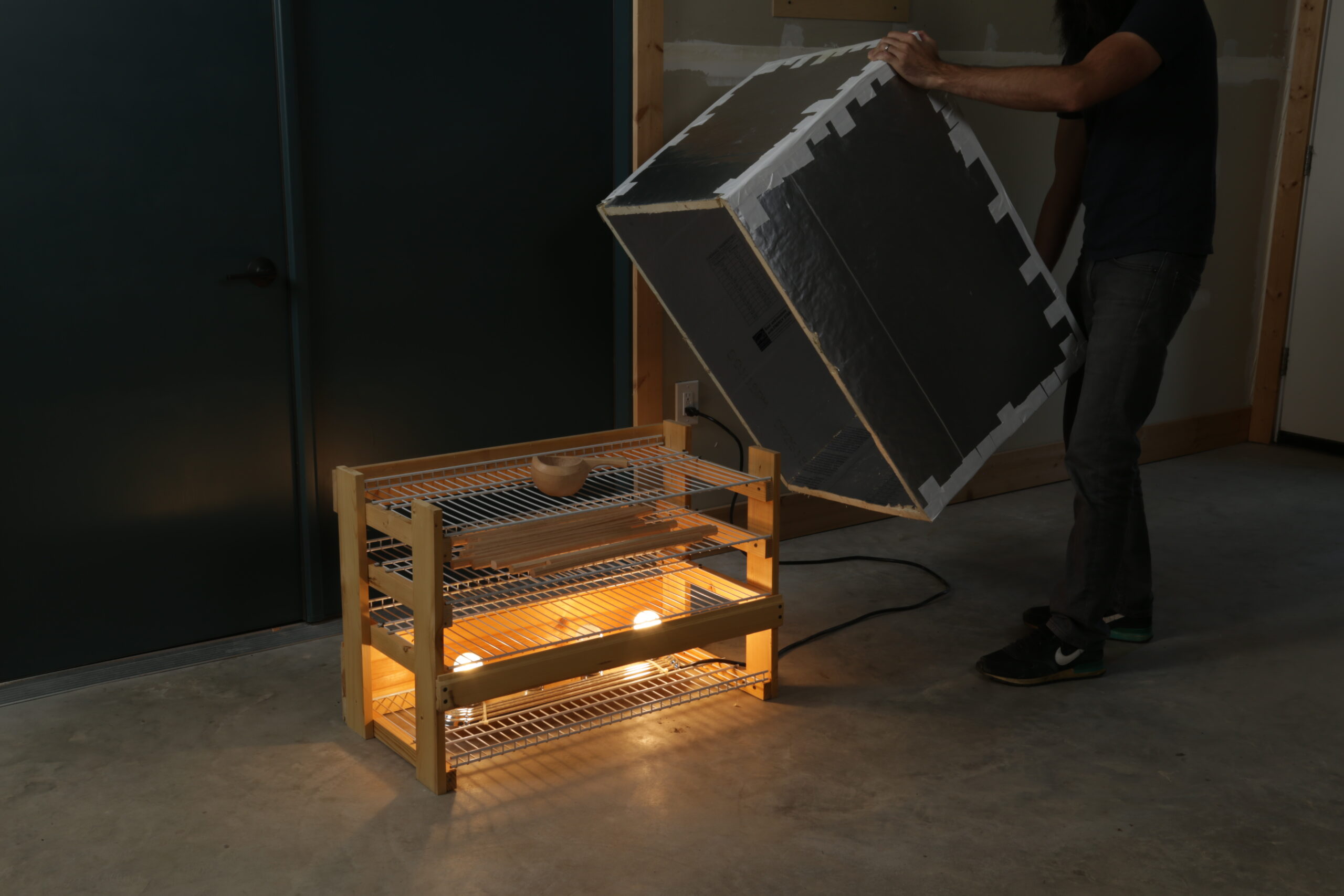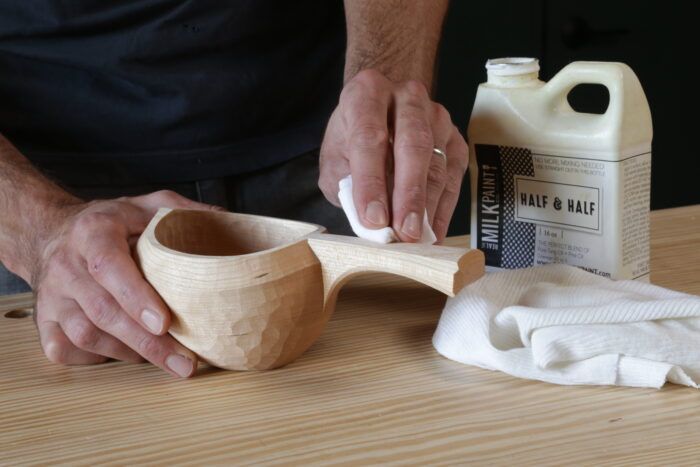My article “Carving a Wooden Cup” covers exactly that: carving a cup from a log. It’s important that you can use that cup after investing all that time in making it, though. The thing is, we all want a lot more from a wooden cup than can generally be expected of the material. Wood alone does not normally excel at holding hot liquids or maintaining a neutral taste. To give it more of an advantage, I use a specific finishing regimen, which I’ve developed after a fair amount of trial and error, as well as conversations with fellow craftsperson Don Nalezyty to better understand the chemistry of oil curing. Nothing impacts the ultimate function and enjoyment of a cup more than its finish and how it’s applied.
I use several very thin coats of tung oil cut in half with citrus oil, namely Half & Half from The Real Milk Paint Co., and cure each coat in a light bulb kiln for 24 hours at about 170°.

There are other naturally polymerizing plant-based oils, but tung oil forms the most chemical bonds, which translates to a more durable finish. If your oil is not properly cured all the way before use, your drinks will taste awful and you’ll increase the risk of cracks. Curing without the kiln is possible, but will take a minimum of weeks for each coat and more likely months. My kiln is simply a wooden frame with shelves made from closet racks. There’s a light bulb at the bottom. Once everything’s in place, I cover the kiln with a shell made from rigid insulation taped together.

Once the oil has cured, you’re ready to use the cup. A wooden cup can last for years if properly cared for. Don’t put it in the dishwasher. Try to keep hot liquids below 190°. Avoid leaving liquids in the cup for long periods, such as overnight. Lastly, don’t be shy about using it. Regular use can help to maintain a relatively stable moisture content in the wood, which can be better than cycling through extremes of dry and wet.








